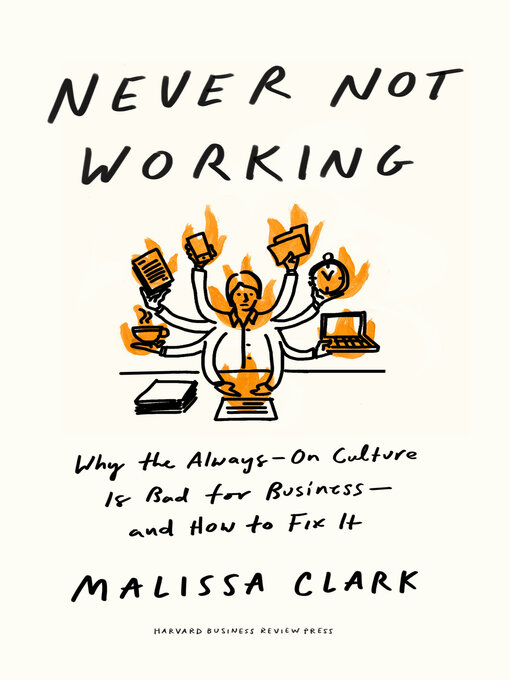The always-on, hustle culture creates an unhealthy, counterproductive relationship with work.
Many workers believe that to compete with other top talent, they must embrace a culture that rewards long hours and a constant connection to work. Businesses and society endorse busyness, overwork, and extreme commitment as the most valued traits in workers. Sometimes that endorsement is explicit, as when Elon Musk told X/Twitter employees to work "long hours at high intensity" or get fired. More often it's an implicit contract, a buildup of organizational and cultural norms and the adoption of new technologies that make it easy to tether people to work.
Either way, this workaholic behavior is unhealthy and counterproductive for workers and for organizations. It's time to fight back. Malissa Clark—a preeminent researcher on the culture of overwork—shows you how in Never Not Working. Clark examines overwork and burnout, not just from the individual's perspective but from an organizational perspective too. She delivers a comprehensive, nuanced definition of workaholism, busting myths along the way—working long hours, it turns out, doesn't automatically make you a workaholic. She also helps you assess whether you're falling prey to the phenomenon and whether you're creating workaholics in your organization.
Clark shows you how to escape the trap of putting work at the center of everything and thus losing your well-being—or your company's performance—in the process. Deeply researched and written for everyone from leaders to individual contributors, Never Not Working is the essential guide to identifying workaholism in yourself and others and starting on the road to recovery.

